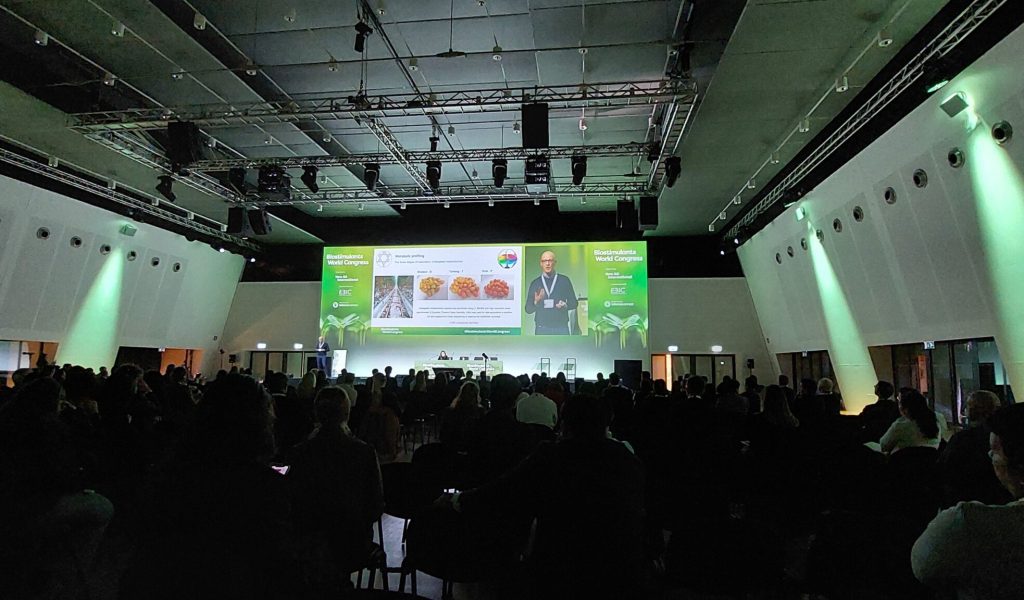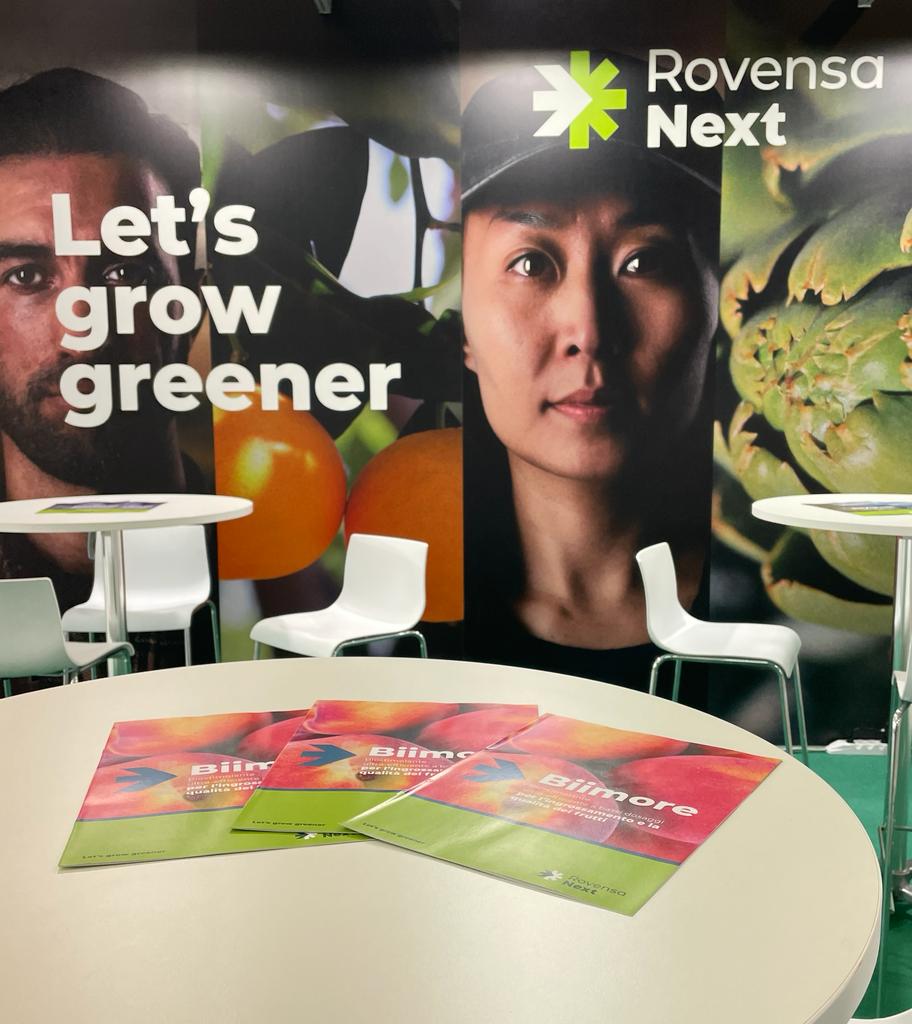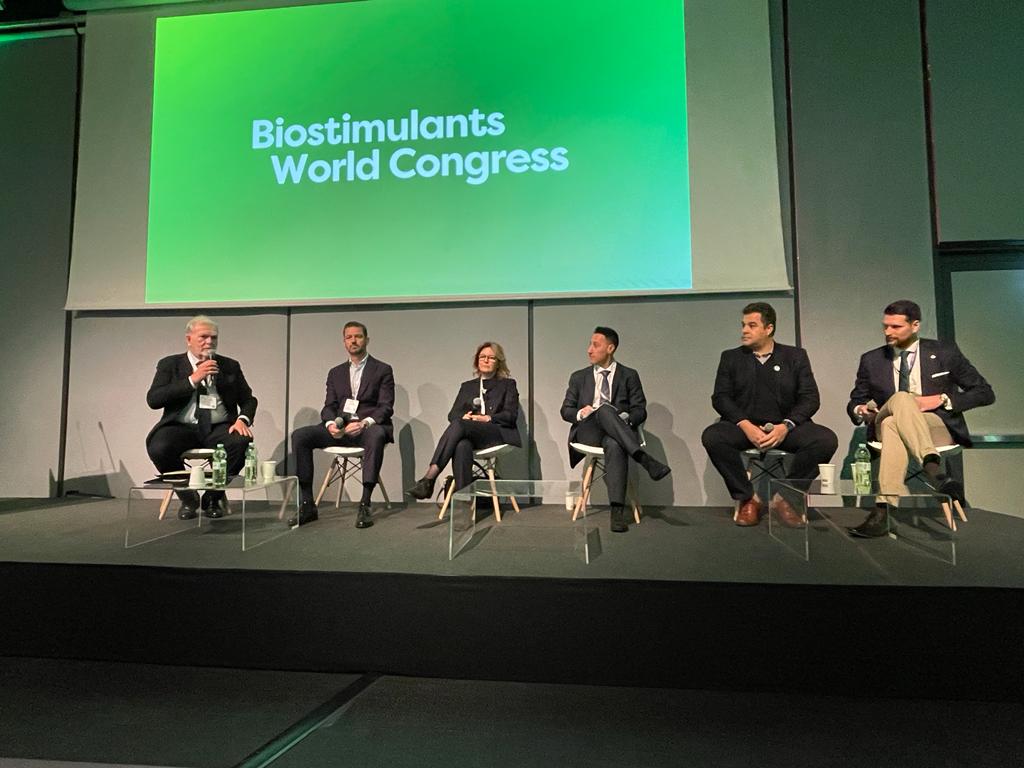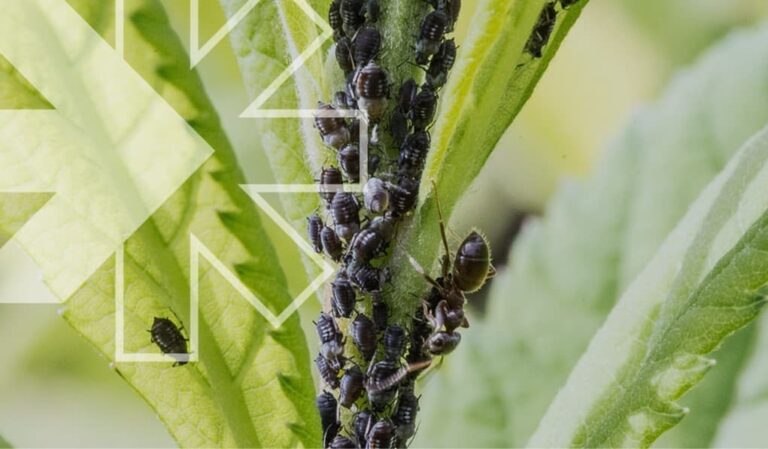Last week, New AG international with the partnership of EBIC (European Biostimulants Industry Council) hosted its annual global conference on biostimulants, alongside the Biocontrol & Biomes Congress in Milan, convening leading companies in the biosolutions industry for four days of stimulating conversation.
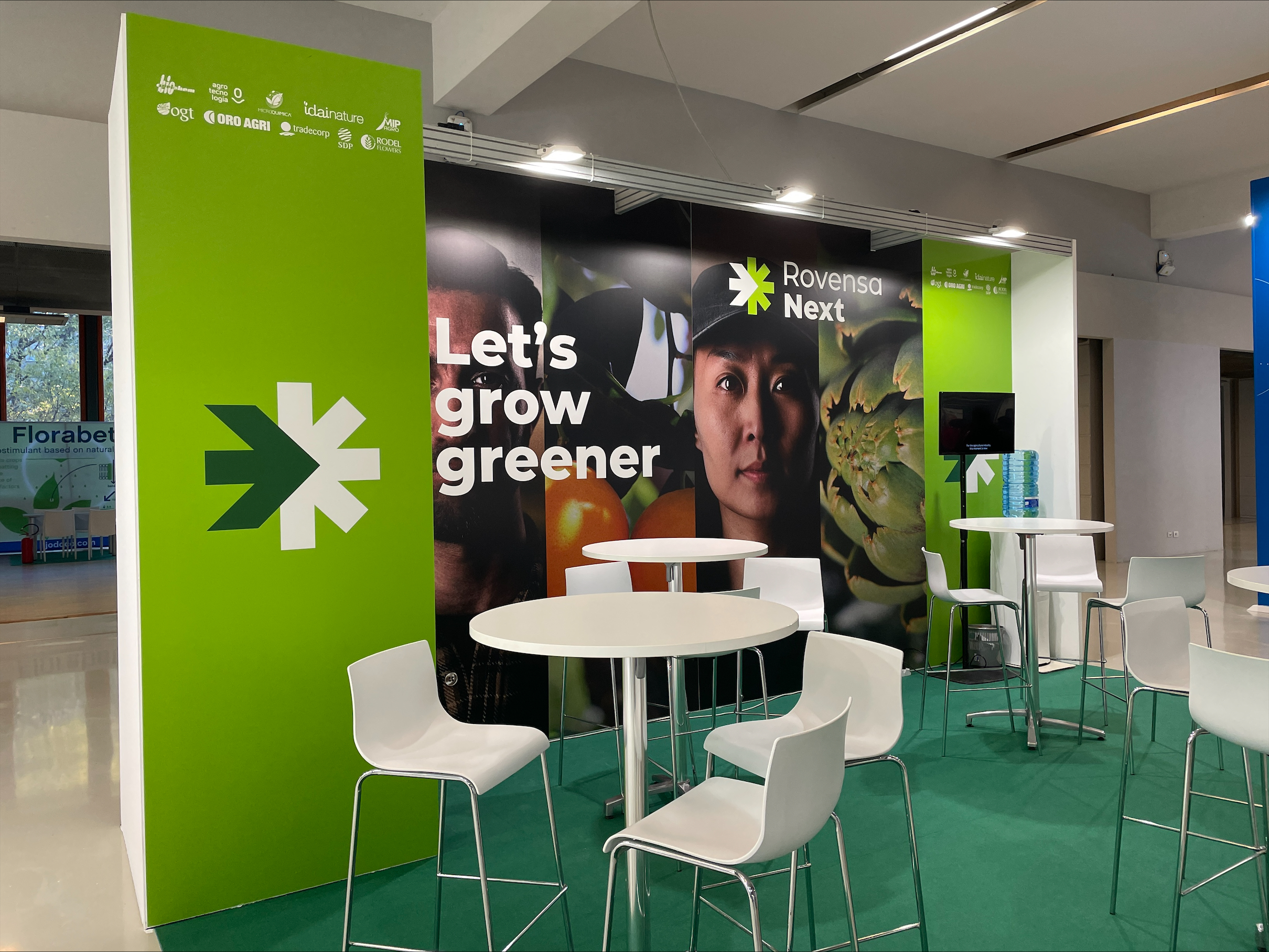
Rovensa Next joined for the first time as Gold Sponsor and gave four presentations highlighting the vital role biostimulants, biocontrol and biomes play in the sustainable challenges farmers face today. Company experts, collaborators and colleagues took to the stage to present insights on innovative solutions and research strategies that Rovensa Next is employing to develop its holistic portfolio of biosolutions that aims to drive the biotransformation of agriculture.
Opportunity for transformation in biosolutions industry
Javier Calleja, Rovensa Group CEO, took to the stage alongside other industry executives for the CEO Insights Panel where the group discussed opportunities and challenges in the biologicals sector.

Javier highlighted: “we aspire to be the trusted leader in biosolutions. We achieve this by placing a focus on research and development, driving innovation, and fostering direct communication with growers. With our team on the ground, we gain firsthand insights into their needs and sustainability challenges. We are committed to be a reliable partner in the journey towards sustainable and productive agricultural practices.”
As a global company with intimate local knowledge and expertise, and an entrepreneurial quality that is inherent from the 10 pioneering companies that make up the business unit, Rovensa Next is able to directly address these challenges.
Javier also shared his own thoughts on bringing 10 companies together under one roof, which he says was not as hard as it sounds, because “nothing has really changed at our core”. The main objective of Rovensa Next was to enhance the company’s capabilities, create value and combine everyone’s unique strengths to provide the best portfolio of biosolutions for growers and distributors, and according to Javier, “we have created something even stronger”.
Developing the industry’s largest portfolio of biosolutions
Rovensa Next is dedicated to research and innovation to shape a more sustainable future for agriculture, and this is at the heart of its portfolio that answers grower needs from seed to shelf. The company has more than 850 technical experts that work alongside growers who provide feedback to the R&D team, meaning its solutions and research are driven by the real sustainability challenges of farmers and distributors.
At BWC 2023, Rovensa Next presented how the company is directly answering these challenges through its technology, know-how and expertise.
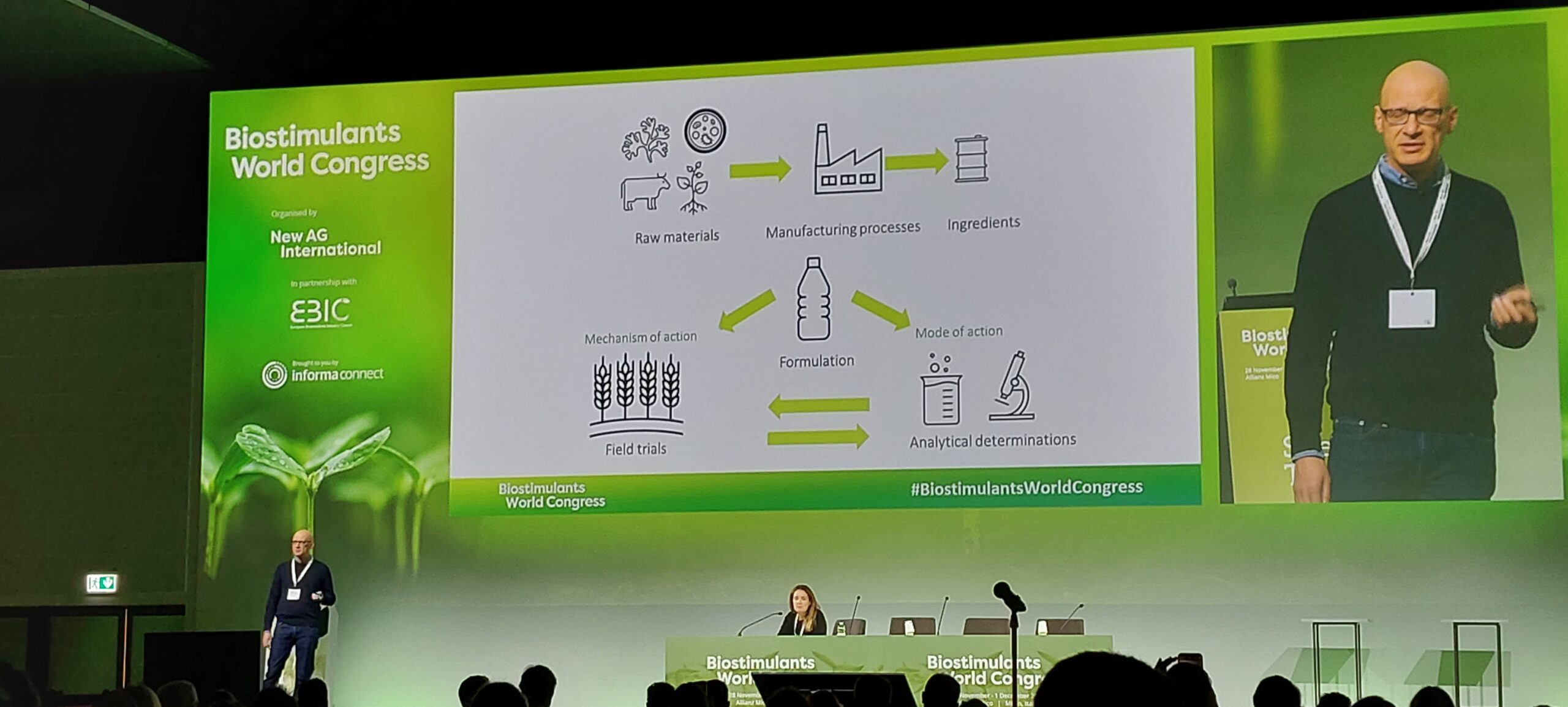
One of Rovensa Next’s academic research partners, Giacomo Cocetta, a professor at the University of Milan, presented how microorganisms are the key to next-generation biostimulants and how they best meet the market needs.
Head of R&D, Biocontrol & Adjuvants, Sara Monteiro, shared a new approach for Nematodes management in a transforming agricultural landscape. She highlighted how climate change is having an impact on the nematodes population, which directly affects how growers are able to manage them. It’s important to note, she says, “plant pathogenic nematodes can only be managed, never eradicated”.

As such, Rovensa Next has developed a new strategy targeting the increase of soil natural antagonists and shaping the plant metabolome by using endemic secondary metabolites. These new products have shown superior efficacy when compared with traditional farmer management tools.
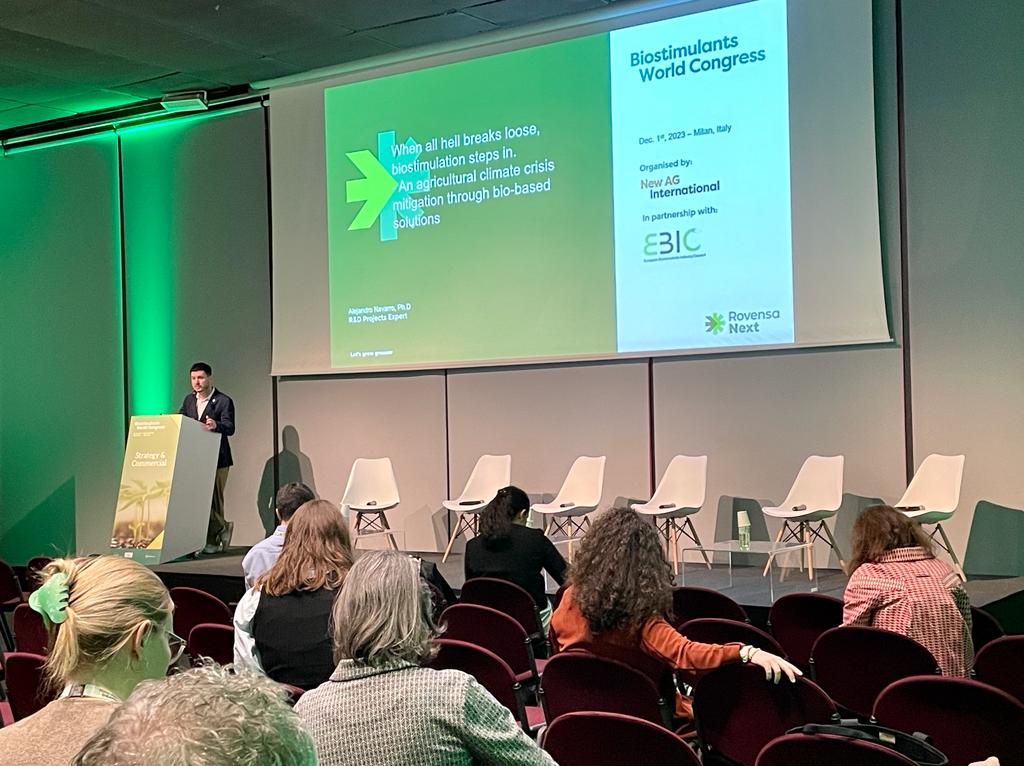
On the biostimulant side, Rovensa Next R&D Expert, Alejandro Navarro Galiano, talked about the critical role biostimulants play “when all hell breaks loose”. Climate change is increasing the severity and frequency of abiotic stress on crops.
From water stress to heat stress, growers are taking a hit to their yield and ultimately, their profitability.
The key, says Navarro, lies in “understanding the mechanisms of plant stress tolerance and adaptation” and how biostimulants affect these mechanisms. He also stresses the importance of training growers, policy makers and society in general to generate awareness about biostimulation and its benefits in the agricultural industry.

